
Egon Schiele Painting Reproductions 1 of 3
1890-1918
Austrian Secession/Expressionist Painter
Egon Leo Adolf Ludwig Schiele, born on 12 June 1890 in Tulln, Lower Austria, was drawn to art from an unusually early age. He spent his childhood roaming railway stations, sketching locomotive engines with a focus that both intrigued and unsettled his family. His father, the station master in Tulln, did not fully appreciate this fascination. Tragically, much of the young artist’s work from those formative years was destroyed by his father’s hand, an act that foreshadowed tensions to come. Schiele’s solitary nature and singular commitment to expression distinguished him early on as a child who did not fit easily into traditional expectations.
After his father died from syphilis when Schiele was fourteen, he came under the care of his maternal uncle, who hoped his nephew might pursue a more practical path than painting. However, a certain resilience within the young man could not be stifled. In 1906 he enrolled at Vienna’s School of Arts and Crafts, following in the footsteps of Gustav Klimt, a towering figure of Viennese modernism who would soon become his mentor. The institution’s constraints eventually pushed Schiele toward the more conservative Academy of Fine Arts, where his impatience with strict academic doctrines soon reached a breaking point. He departed the academy in 1909, forming the “New Art Group” alongside other dissidents dissatisfied with the limitations they encountered in formal training.
Schiele’s initial encounters with Klimt proved pivotal. Klimt not only acquired some of Schiele’s early drawings - he also introduced him to vital patrons, potential collectors, and important figures from the Wiener Werkstätte, a nexus for cutting-edge art and design in Vienna. For a time, Schiele’s work bore noticeable impressions from Klimt and from the broader Art Nouveau currents circulating in early 20th-century Vienna. Nevertheless, by 1910 or so, a pronounced personal style began to surface. His lines grew more distorted, his palette often tinged with unsettling hues. Human figures - gaunt, tense, contorted - populated his canvases and drawings, revealing an artist unafraid to interrogate raw emotion and physical vulnerability.
Such explorations inevitably met with disapproval. In the idyllic towns outside Vienna, where Schiele and his companion Walburga “Wally” Neuzil sought refuge from what they perceived to be a stifling city, local inhabitants bristled at the couple’s unconventional lifestyle. In Neulengbach, suspicions arose concerning Schiele’s use of young models, leading to accusations of immorality. A memorable episode in 1912 saw the authorities seize more than one hundred of his drawings, declaring them obscene. Though the more serious charges were dismissed, Schiele was found guilty of displaying erotically charged art in a place accessible to minors. He served a short sentence and, despite the ordeal, produced a poignant series of prison drawings that testify to his steadfast dedication to his craft even under duress.
By the onset of World War I, Schiele had garnered wider attention. His marriage in 1915 to Edith Harms, a neighbor in Vienna, signified a desire for a more conventional stability, but it simultaneously shattered his earlier liaison with Wally. Although briefly conscripted, his artistic pursuits continued unabated. He was assigned roles that allowed him to draw while in military service, capturing the likenesses of fellow soldiers and occasionally producing studies of the landscapes surrounding his posts. During this period, his work began to exhibit a new complexity - his once fiercely angular figures sometimes took on a fuller form, though the emotional charge of his lines remained unchanged. Themes of birth, death, and familial bonds surfaced, reflecting both personal and cultural upheavals brought on by war.
By 1917, Schiele had managed a return to Vienna where he immersed himself in exhibitions and portrait commissions. Recognition was no longer confined to small circles of avant-garde admirers. Prominent showings, including the 49th exhibition of the Vienna Secession in 1918, signaled an artist poised to assume an ever more central place in European art. Yet the Spanish flu pandemic, which swept through the city that same autumn, claimed the life of Edith, who was six months pregnant. Schiele died three days later, on 31 October 1918, at only twenty-eight years of age. Even during those final days, he created sketches of his dying wife, underscoring how profoundly his art and life were intertwined.
If his paintings and drawings still strike viewers with their startling immediacy, it is because they spring from a deep exploration of the human condition. With an expressive line and twisted figural geometry, he approached subjects such as sexuality, mortality, and self-examination without reservation. Though brief, his career remains pivotal in the study of Expressionism. The journey from his awkward early days in provincial Tulln to the studios of turn-of-the-century Vienna is marked by a fierce insistence on personal truth, translated directly into line and color. Schiele’s legacy endures through a body of work shaped by struggle, vision, and an unrelenting pursuit of candor in art.
After his father died from syphilis when Schiele was fourteen, he came under the care of his maternal uncle, who hoped his nephew might pursue a more practical path than painting. However, a certain resilience within the young man could not be stifled. In 1906 he enrolled at Vienna’s School of Arts and Crafts, following in the footsteps of Gustav Klimt, a towering figure of Viennese modernism who would soon become his mentor. The institution’s constraints eventually pushed Schiele toward the more conservative Academy of Fine Arts, where his impatience with strict academic doctrines soon reached a breaking point. He departed the academy in 1909, forming the “New Art Group” alongside other dissidents dissatisfied with the limitations they encountered in formal training.
Schiele’s initial encounters with Klimt proved pivotal. Klimt not only acquired some of Schiele’s early drawings - he also introduced him to vital patrons, potential collectors, and important figures from the Wiener Werkstätte, a nexus for cutting-edge art and design in Vienna. For a time, Schiele’s work bore noticeable impressions from Klimt and from the broader Art Nouveau currents circulating in early 20th-century Vienna. Nevertheless, by 1910 or so, a pronounced personal style began to surface. His lines grew more distorted, his palette often tinged with unsettling hues. Human figures - gaunt, tense, contorted - populated his canvases and drawings, revealing an artist unafraid to interrogate raw emotion and physical vulnerability.
Such explorations inevitably met with disapproval. In the idyllic towns outside Vienna, where Schiele and his companion Walburga “Wally” Neuzil sought refuge from what they perceived to be a stifling city, local inhabitants bristled at the couple’s unconventional lifestyle. In Neulengbach, suspicions arose concerning Schiele’s use of young models, leading to accusations of immorality. A memorable episode in 1912 saw the authorities seize more than one hundred of his drawings, declaring them obscene. Though the more serious charges were dismissed, Schiele was found guilty of displaying erotically charged art in a place accessible to minors. He served a short sentence and, despite the ordeal, produced a poignant series of prison drawings that testify to his steadfast dedication to his craft even under duress.
By the onset of World War I, Schiele had garnered wider attention. His marriage in 1915 to Edith Harms, a neighbor in Vienna, signified a desire for a more conventional stability, but it simultaneously shattered his earlier liaison with Wally. Although briefly conscripted, his artistic pursuits continued unabated. He was assigned roles that allowed him to draw while in military service, capturing the likenesses of fellow soldiers and occasionally producing studies of the landscapes surrounding his posts. During this period, his work began to exhibit a new complexity - his once fiercely angular figures sometimes took on a fuller form, though the emotional charge of his lines remained unchanged. Themes of birth, death, and familial bonds surfaced, reflecting both personal and cultural upheavals brought on by war.
By 1917, Schiele had managed a return to Vienna where he immersed himself in exhibitions and portrait commissions. Recognition was no longer confined to small circles of avant-garde admirers. Prominent showings, including the 49th exhibition of the Vienna Secession in 1918, signaled an artist poised to assume an ever more central place in European art. Yet the Spanish flu pandemic, which swept through the city that same autumn, claimed the life of Edith, who was six months pregnant. Schiele died three days later, on 31 October 1918, at only twenty-eight years of age. Even during those final days, he created sketches of his dying wife, underscoring how profoundly his art and life were intertwined.
If his paintings and drawings still strike viewers with their startling immediacy, it is because they spring from a deep exploration of the human condition. With an expressive line and twisted figural geometry, he approached subjects such as sexuality, mortality, and self-examination without reservation. Though brief, his career remains pivotal in the study of Expressionism. The journey from his awkward early days in provincial Tulln to the studios of turn-of-the-century Vienna is marked by a fierce insistence on personal truth, translated directly into line and color. Schiele’s legacy endures through a body of work shaped by struggle, vision, and an unrelenting pursuit of candor in art.
67 Schiele Paintings
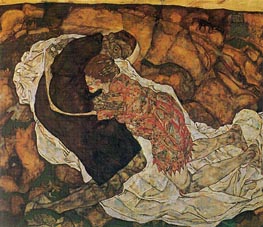
Death and the Maiden 1915
Oil Painting
$2032
$2032
Canvas Print
$78.56
$78.56
SKU: SCE-2677
Egon Schiele
Original Size: 150 x 180 cm
Galerie Belvedere, Vienna, Austria
Egon Schiele
Original Size: 150 x 180 cm
Galerie Belvedere, Vienna, Austria
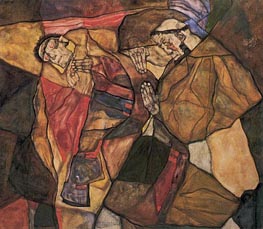
Agony 1912
Oil Painting
$1767
$1767
Canvas Print
$82.31
$82.31
SKU: SCE-2678
Egon Schiele
Original Size: 70 x 80 cm
Neue Pinakothek, Munich, Germany
Egon Schiele
Original Size: 70 x 80 cm
Neue Pinakothek, Munich, Germany
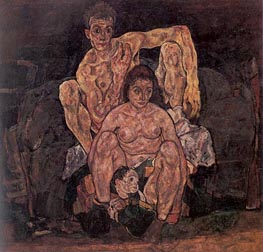
The Family 1918
Oil Painting
$1841
$1841
Canvas Print
$88.43
$88.43
SKU: SCE-2679
Egon Schiele
Original Size: 150 x 160.8 cm
Galerie Belvedere, Vienna, Austria
Egon Schiele
Original Size: 150 x 160.8 cm
Galerie Belvedere, Vienna, Austria
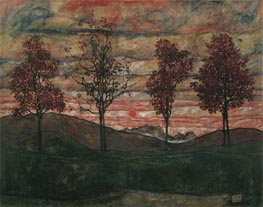
Four Trees 1917
Oil Painting
$1161
$1161
Canvas Print
$73.81
$73.81
SKU: SCE-16771
Egon Schiele
Original Size: 110.5 x 141 cm
Galerie Belvedere, Vienna, Austria
Egon Schiele
Original Size: 110.5 x 141 cm
Galerie Belvedere, Vienna, Austria
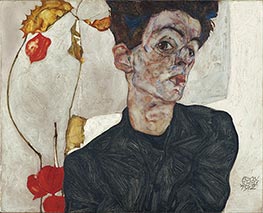
Self-Portrait with Physalis 1912
Oil Painting
$892
$892
Canvas Print
$61.71
$61.71
SKU: SCE-17216
Egon Schiele
Original Size: 32.2 x 39.8 cm
Leopold Museum, Vienna, Austria
Egon Schiele
Original Size: 32.2 x 39.8 cm
Leopold Museum, Vienna, Austria
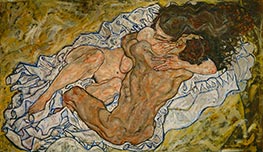
The Embrace 1917
Oil Painting
$1690
$1690
Canvas Print
$61.71
$61.71
SKU: SCE-17217
Egon Schiele
Original Size: 100 x 170 cm
Galerie Belvedere, Vienna, Austria
Egon Schiele
Original Size: 100 x 170 cm
Galerie Belvedere, Vienna, Austria
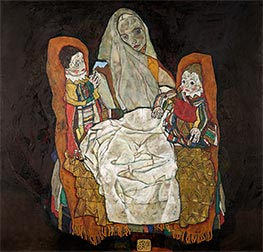
Mother with Two Children c.1915/17
Oil Painting
$1473
$1473
Canvas Print
$89.80
$89.80
SKU: SCE-17218
Egon Schiele
Original Size: 150 x 159.8 cm
Galerie Belvedere, Vienna, Austria
Egon Schiele
Original Size: 150 x 159.8 cm
Galerie Belvedere, Vienna, Austria
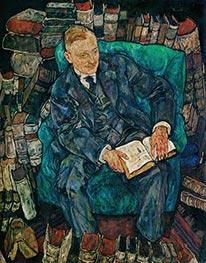
Dr. Hugo Koller 1918
Oil Painting
$1751
$1751
Canvas Print
$73.13
$73.13
SKU: SCE-17219
Egon Schiele
Original Size: 140.3 x 110 cm
Galerie Belvedere, Vienna, Austria
Egon Schiele
Original Size: 140.3 x 110 cm
Galerie Belvedere, Vienna, Austria
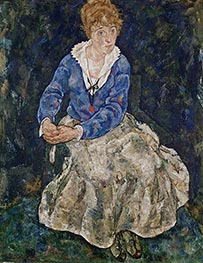
Portrait of the Artist's Wife, Edith Schiele 1918
Oil Painting
$1445
$1445
Canvas Print
$72.10
$72.10
SKU: SCE-17220
Egon Schiele
Original Size: 139.8 x 109.8 cm
Galerie Belvedere, Vienna, Austria
Egon Schiele
Original Size: 139.8 x 109.8 cm
Galerie Belvedere, Vienna, Austria
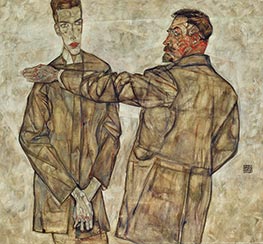
Double Portrait of Otto and Heinrich Benesch 1913
Oil Painting
$1661
$1661
Canvas Print
$86.73
$86.73
SKU: SCE-17221
Egon Schiele
Original Size: 121 x 139 cm
Lentos Kunstmuseum, Linz, Austria
Egon Schiele
Original Size: 121 x 139 cm
Lentos Kunstmuseum, Linz, Austria
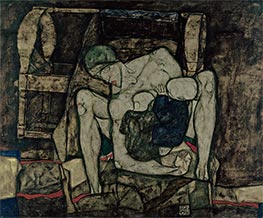
Blind Mother 1914
Oil Painting
$1305
$1305
Canvas Print
$77.55
$77.55
SKU: SCE-17222
Egon Schiele
Original Size: 99 x 120 cm
Leopold Museum, Vienna, Austria
Egon Schiele
Original Size: 99 x 120 cm
Leopold Museum, Vienna, Austria
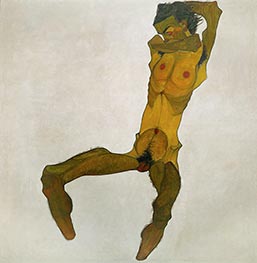
Seated Male Nude (Self-Portrait) 1910
Oil Painting
$1174
$1174
Canvas Print
$91.49
$91.49
SKU: SCE-17223
Egon Schiele
Original Size: 152.5 x 150 cm
Leopold Museum, Vienna, Austria
Egon Schiele
Original Size: 152.5 x 150 cm
Leopold Museum, Vienna, Austria
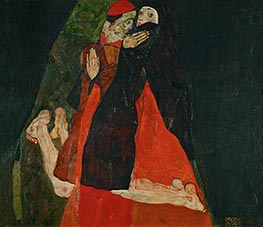
Cardinal and Nun (Caress) 1912
Oil Painting
$1143
$1143
Canvas Print
$80.95
$80.95
SKU: SCE-17224
Egon Schiele
Original Size: 70 x 80.5 cm
Leopold Museum, Vienna, Austria
Egon Schiele
Original Size: 70 x 80.5 cm
Leopold Museum, Vienna, Austria
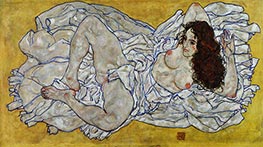
Reclining Woman 1917
Oil Painting
$1838
$1838
Canvas Print
$61.71
$61.71
SKU: SCE-17225
Egon Schiele
Original Size: 96 x 171 cm
Leopold Museum, Vienna, Austria
Egon Schiele
Original Size: 96 x 171 cm
Leopold Museum, Vienna, Austria
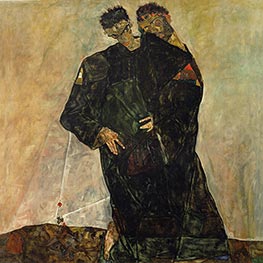
The Hermits 1912
Oil Painting
$1518
$1518
Canvas Print
$93.53
$93.53
SKU: SCE-17226
Egon Schiele
Original Size: 181 x 181 cm
Leopold Museum, Vienna, Austria
Egon Schiele
Original Size: 181 x 181 cm
Leopold Museum, Vienna, Austria
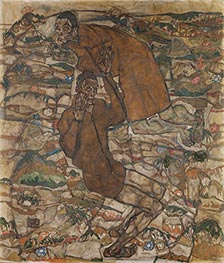
Levitation (The Blind II) 1915
Oil Painting
$2099
$2099
Canvas Print
$79.42
$79.42
SKU: SCE-17227
Egon Schiele
Original Size: 200 x 172 cm
Leopold Museum, Vienna, Austria
Egon Schiele
Original Size: 200 x 172 cm
Leopold Museum, Vienna, Austria
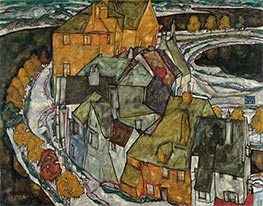
Crescent of Houses II (Island Town) 1915
Oil Painting
$1189
$1189
Canvas Print
$73.29
$73.29
SKU: SCE-17228
Egon Schiele
Original Size: 110.5 x 140.5 cm
Leopold Museum, Vienna, Austria
Egon Schiele
Original Size: 110.5 x 140.5 cm
Leopold Museum, Vienna, Austria
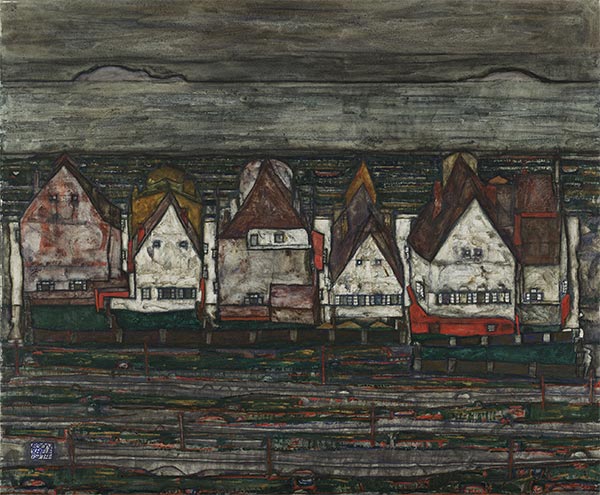
Houses by the Sea (Row of Houses) 1914
Oil Painting
$1168
$1168
Canvas Print
$77.21
$77.21
SKU: SCE-17229
Egon Schiele
Original Size: 99.5 x 119.7 cm
Leopold Museum, Vienna, Austria
Egon Schiele
Original Size: 99.5 x 119.7 cm
Leopold Museum, Vienna, Austria
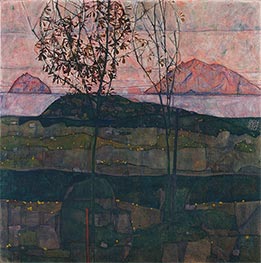
Setting Sun 1913
Oil Painting
$1058
$1058
Canvas Print
$92.85
$92.85
SKU: SCE-17230
Egon Schiele
Original Size: 90 x 90.5 cm
Leopold Museum, Vienna, Austria
Egon Schiele
Original Size: 90 x 90.5 cm
Leopold Museum, Vienna, Austria
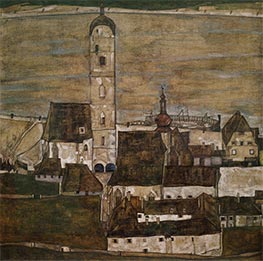
Stein on the Danube II 1913
Oil Painting
$1038
$1038
Canvas Print
$93.53
$93.53
SKU: SCE-17231
Egon Schiele
Original Size: 91.5 x 91.5 cm
Leopold Museum, Vienna, Austria
Egon Schiele
Original Size: 91.5 x 91.5 cm
Leopold Museum, Vienna, Austria

Autumn Tree in Stirred Air (Winter Tree) 1912
Oil Painting
$943
$943
Canvas Print
$93.19
$93.19
SKU: SCE-17232
Egon Schiele
Original Size: 80 x 80.5 cm
Leopold Museum, Vienna, Austria
Egon Schiele
Original Size: 80 x 80.5 cm
Leopold Museum, Vienna, Austria
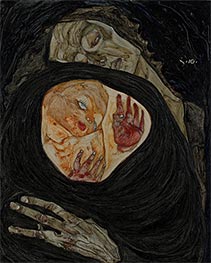
Dead Mother I 1910
Oil Painting
$846
$846
Canvas Print
$61.71
$61.71
SKU: SCE-17233
Egon Schiele
Original Size: 32 x 25.7 cm
Leopold Museum, Vienna, Austria
Egon Schiele
Original Size: 32 x 25.7 cm
Leopold Museum, Vienna, Austria
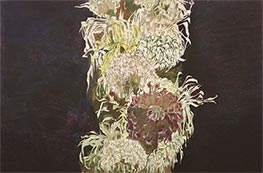
Chrysanthemums 1910
Oil Painting
$1128
$1128
Canvas Print
$61.71
$61.71
SKU: SCE-17234
Egon Schiele
Original Size: 61 x 92 cm
Leopold Museum, Vienna, Austria
Egon Schiele
Original Size: 61 x 92 cm
Leopold Museum, Vienna, Austria
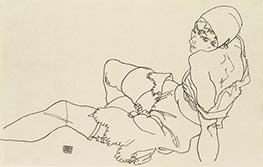
Leaning Woman in Underwear 1917
Paper Art Print
$58.44
$58.44
SKU: SCE-17235
Egon Schiele
Original Size: 29 x 45.3 cm
Leopold Museum, Vienna, Austria
Egon Schiele
Original Size: 29 x 45.3 cm
Leopold Museum, Vienna, Austria